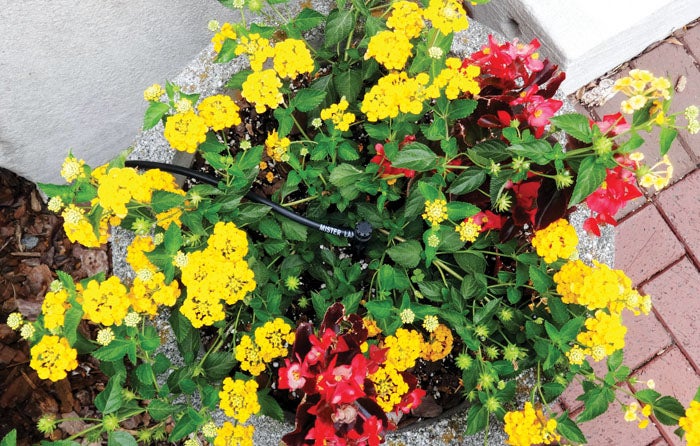Darrell Blackwelder: The importance of irrigation in the summer
Published 12:00 am Saturday, July 8, 2023

- Drip pipe
By Darrell Blackwelder
For the Salisbury Post
Even when we get evening rain showers, supplemental irrigation is necessary to keep bedding plants, lawns and vegetables thriving. Early morning is the ideal time to irrigate to evade evaporation during the heat of the day. Avoid irrigating late in the afternoon or at night. Even though late evening and night irrigation provides cooler temperatures, it also provides the perfect environment for the development of foliar diseases. Implementing a rain gauge is important to measure usage of overhead irrigation to determine a sufficient amount of water. Frequent low amounts of irrigation cause more damage by generating shallow root systems. Check the soil and root systems of plants often to make sure plants are receiving an adequate water supply. If you have a drip system, place a small plastic cup beneath the emitter to measure the water amount. Automatic timers ease the task of irrigation and reduce waste by eliminating over watering.
There is really no valid way to determine how much to water a plant or a garden area in a week. Plant species, soil types, exposures are just a few variables, which exist, that can often confuse the most experienced gardener. Newly planted shrubs and trees will need more water than well-established materials. Dogwoods, rhododendron, azaleas and camellias have shallow root systems, succumbing to drought in dry weather. These may need extra water.
Adding mulch is a very effective method to aid in water conservation. Three or more inches of organic mulch such as bark or pine needles conserves soil moisture and keep plants turgid. Wheat straw, shredded newspaper and other organic material can also be used in vegetable gardens as an aid in conserving moisture, especially around tomato plants and other plants which are heavy drinkers.
Darrell Blackwelder is the retired horticulture agent and director with the North Carolina Cooperative Extension Service in Rowan County. Contact him at deblackw@ncsu.edu.



